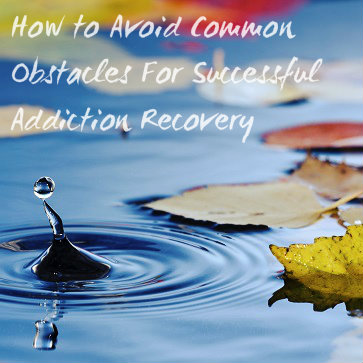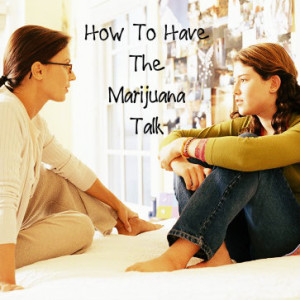Addiction is a chronic disease that requires treatment for a lifetime. Unlike some chronic physical diseases, treatment for addiction is not as simple as taking a medication. Recovery from addiction requires a combination of therapy, support, willpower and lifestyle changes. Making changes to your diet and how you exercise can be a useful part of that treatment. Anecdotal evidence, as well as rigorous scientific research, has proven that a nutritious diet and an exercise regimen can help you cope with your disease.
How Can Diet Help Addicts?
 The first and most obvious way in which a healthy diet can help you is that it can restore some of the damage that you have done to your body. Drugs and alcohol really take a toll on your physical health. Much of treatment for addiction focuses on the psychological harm, but your body is suffering too. The substances you have been abusing have caused harm to your body, but you also have likely not been eating well, as your addiction was your main focus.
The first and most obvious way in which a healthy diet can help you is that it can restore some of the damage that you have done to your body. Drugs and alcohol really take a toll on your physical health. Much of treatment for addiction focuses on the psychological harm, but your body is suffering too. The substances you have been abusing have caused harm to your body, but you also have likely not been eating well, as your addiction was your main focus.
Some of the common nutritional issues that addicts face include electrolyte imbalances due to diarrhea and vomiting, vitamin deficiencies caused by excessive drinking, being overweight from smoking marijuana or from lack of exercise, and malnutrition from simply ignoring what you put into your body. A steady diet of cheap junk food is not unusual for addicts.
Focusing on your diet when you are in recovery can help to correct some of the damage you have caused by using drugs and by ignoring your nutritional needs for a period of time. Reestablishing a rounded and healthful diet will immediately begin to make you feel better. It will also give you something positive to focus on. A major struggle for addicts in recovery is finding something to fill the gap left by drug or alcohol abuse. When you focus time and energy on preparing good meals, you give your mind something positive to focus on.
How Can Exercise Aid Addiction Recovery?
Exercise, like nutrition, is an important aspect of a healthy lifestyle, for addicts and non-addicts alike. Regular exercise helps you to maintain a healthy weight, reduce your risk of diabetes, cancer, and heart disease, maintain strong bones and muscles, and improve your mood. All of these are important reasons for anyone to exercise, but for an addict in recovery, they become even more important.
Another reason to turn to exercise in recovery is the natural high that it can give you. When you exercise, your body produces chemicals called endorphins that make you feel good. The so-called runner’s high is a result of endorphins and refers to the positive feelings associated with the activity. In the absence of the high that you sought for so long from your drug of choice, depression is possible. The endorphins from exercise can be a powerful substitute for the artificial high that drugs gave you.
Move Forward In Recovery, But Don’t Substitute Your Addiction
Using diet and exercise as aids to recovery is overwhelmingly positive. Good nutrition and regular exercise can help your body heal, can improve your mood, and can give you a positive focus for your life.
The only risk is that of substituting your addiction. Addicts in recovery are at risk of substituting their substance of choice with an activity. It isn’t guaranteed to happen to you, but be aware of the possibility of your focus on diet and exercise becoming obsessive. Listen to your loved ones too. They may see the signs before you do. In spite of this risk, taking care of your diet and focusing on exercise are great ways to help you move forward in recovery.
Check Out These Tips To Help Recovery
If you’re contemplating addiction treatment, it’s probably not something you’re looking forward to. In fact, it wouldn’t be unusual if you’re completely dreading it and wish you somehow could avoid it altogether. But you can’t (for whatever reason) or you choose not to. So, it makes sense to do everything in your power to ensure that rehab is a one-time event and not end up having to repeat it down the road, right?
Of course, that’s much easier said than done. The road to recovery is replete with potential obstacles, some of which can be pretty daunting or so subtle that you don’t recognize them until it’s too late. Fortunately, though, the more aware and proactive you are throughout the process (i.e. before, during, and after rehab), the greater your chances of a successful, lasting recovery. Following are several ways to prepare for and avoid many of the most likely obstacles.
Prior To Rehab
Overcome the cost issue. There’s no doubt about it; addiction treatment often comes with a high price tag. Those daunting dollar signs can make you, like many who struggle with an addiction, feel that the treatment you need – and deserve – is simply out of reach. But before you throw your hands up in despair and reach for another drink (or hit), know that 1) you’re not alone, and 2) there are very likely options you haven’t yet realized.
 The first thing to do is check with your health insurance company (if you have health coverage) to find out exactly what they will cover. Many plans do cover addiction treatment to varying degrees. If you don’t have insurance, or if the coverage is very limited, then consider financing the program. Remember, this is a serious investment in your future, so don’t rule out financing it if needed.
The first thing to do is check with your health insurance company (if you have health coverage) to find out exactly what they will cover. Many plans do cover addiction treatment to varying degrees. If you don’t have insurance, or if the coverage is very limited, then consider financing the program. Remember, this is a serious investment in your future, so don’t rule out financing it if needed.
Many treatment facilities will allow you to set up a payment plan. Some offer financial assistance as well. Talk to the admissions department of the program or programs you’re considering to determine all the options available to you. You may find that the cost isn’t as prohibitive as it initially appeared, and that doors can open that you never expected. Don’t let the cost obstacle defeat you right out of the gate before you’ve looked into every possible option.
Another way to think of it: the cost of not getting treatment will almost certainly far exceed the cost of the most expensive treatment program in the long run – and often many times over. Many of those seeking treatment find that the old saying really does hold true: where there’s a will there’s a way. Have faith that a door will open if you knock on enough of them.
Avoid the wrong treatment program (for you) by being selective. Glossy brochures and fancy marketing tactics don’t necessarily mean a treatment center is good at what they do – or that it’s the right one for you. Do your research; check out the facility’s history, including staff credentials, licensure, etc. If possible, talk to anyone who’s received treatment there or who may be familiar with the program. Look for programs that are well-established, have a good reputation, and offer a comprehensive, holistic approach. Also, look for programs that offer good aftercare (more on that later).
It’s also important to make sure the program you choose offers treatment that’s based on research, rather than some “alternative” or trendy approach that may be lacking in substance even though it sounds really good on the surface. Extensive research has been done in the area of addiction treatment, and programs that base their treatment on scientific evidence are much more likely to be beneficial. Check to see if the program is properly accredited, which is a good indicator it’s approach is solid.
Make sure the program is a good fit for you. Some treatment centers have a specific philosophy (e.g. one that’s “based on Biblical principles”) or cater to a specific demographic (e.g. women only). You may thrive in a secular program but feel very uncomfortable in a faith-based rehab center – or vice versa.
You’ll be much more likely to succeed in rehab (and beyond) if you choose a program that fits you well the first time around. If you’re not sure, contact a few treatment centers and ask a lot of questions about their philosophy and approach. Keep in mind, though, that while none may feel like a “perfect fit”, one or two should feel like a better fit than others.
Along these same lines, it’s important to find a program that can accommodate any special needs you may have. For example, if you’re the sole custodian of your children, it would be a good idea to find a program that offers housing or other child care options for them while you’re in treatment.
During Rehab
Actively participate. Recovery isn’t something that passively happens to you – it’s something you actively work to achieve. You can go into addiction treatment kicking and screaming, sullenly determined to refuse to participate – and leave wondering why it seemed like a complete waste of time. Or, you can make the decision from the outset to actively participate and try to get as much out of your time there as you can.
Will it be fun? Probably not. Will it be worthwhile? That’s largely up to you.
Many addicts have a victim mentality, blaming everyone but themselves for their problems. Maybe your father was physically abusive while you were growing up, or your mother is an unbearable narcissist who finds nothing but fault with you. But while those experiences no doubt significantly impacted your life, they don’t have to define you. Now is the time to decide that your future is up to you and the choices you make from this day forward. The more you strive to get out of rehab this time, the less likely there will be a next time.
After Rehab
Regard your recovery as a long-term process. Successful recovery isn’t akin to a 100-yard dash. Rather, it’s much more like a marathon. Rehab may be a short-term, time-limited event, but it doesn’t end there. Yes, you did a lot of hard work while you were there – and it’s important to acknowledge that. But you didn’t walk out the door “cured” of your addiction. That’s why it’s imperative to continue using the things you learned in rehab if you’re serious about staying clean and sober.
Don’t let that discourage you. Remember, the most worthwhile things in life rarely (if ever) come quickly and easily. They take effort, tenacity, and determination.
Make sure you get proper aftercare. One of the most crucial aspects of successful recovery – and thwarting an early relapse – is proper aftercare. As mentioned above, recovery didn’t end when you left rehab. That would be nice, but it’s not reality. Many addiction treatment facilities offer ongoing aftercare to help ensure your success. However, if your rehab treatment occurs far away from home, it’s important to make sure a good aftercare plan is in place when you return home.
An aftercare program typically includes ongoing counseling and support. Support may come in the form of support groups (that you attend on a regular basis) as well as helping you establish a solid support network. Aftercare is crucial to your recovery because, without it, you are much more likely to relapse. It helps bolster you during times of temptation while keeping you accountable. Those who have a strong aftercare program are much less vulnerable to slipping back into their old habits – the very habits that contributed to their addiction.
Surround yourself with supportive people. You’ll encounter three types of people before, during, and after rehab: those who truly want you to succeed, those who want to undermine you, and those who don’t care one way or the other. The more you’re able to surround yourself with individuals in the first category, the greater your chances of staying on track with your recovery.
Sometimes supportive individuals (outside of those involved in your aftercare) are hard to find, especially if you don’t have supportive family or friends, have moved to a new city, or severely alienated everyone prior to rehab. But it’s not impossible with some effort. Twelve-step programs and other types of support groups are available in most areas. Online groups are also available, although they shouldn’t the replace face-to-face interactions that occur in support groups that you physically attend.
You can also find supportive individuals in a variety of contexts, such as a church community or an exercise-based program – any type of group in which people are more likely to endorse a healthy lifestyle and be supportive of fellow members. Talk to your aftercare counselor about ways to bolster your support network, as well as how to avoid situations and settings that may not be in your best interest.
Above all else, believe in yourself. You can either be your greatest cheerleader or your worst enemy. Ultimately, that choice is up to you. As someone in recovery, you may still be haunted at times by past pejorative labels. People may have been very cruel in the harsh words and judgments they directed towards you. And those can be hard to forget. But having an addiction doesn’t make you any less worthy than anyone else. Not to mention, choosing to get help, do the hard work, and continuing to work on your recover shows that you are resilient and courageous – two traits that should make you proud.
The recovery journey is anything but easy – anyone who says otherwise has never walked that path. The obstacles along the way can be overcome. Take it one step and one day at a time. Believe in yourself and you can and will succeed.
Check Out If Your Insurance Will Cover Your Rehab
04 Feb 2014
How Is Your Drinking Impacting Your Kids?
You don’t have to be an alcoholic for your drinking to have a negative impact on your children. When you drink too much, there are numerous ways in which your children are affected. You are shaping their attitudes toward alcohol and drinking, but you also may become a different person when you drink. Your shifting moods, your time devoted to drinking, your use of alcohol to temper your emotions; all of these impact your children.
Does My Drinking Determine If My Child Will Drink?
 Everything you do and say helps to shape your child’s outlook on life and how he relates to the world. What you do—your actions—are far more impactful than what you say. If you lecture your children on the importance of drinking in moderation and then regularly go off the deep end with your own drinking, the latter is what they really notice.
Everything you do and say helps to shape your child’s outlook on life and how he relates to the world. What you do—your actions—are far more impactful than what you say. If you lecture your children on the importance of drinking in moderation and then regularly go off the deep end with your own drinking, the latter is what they really notice.
According to research, the best way to positively impact your children’s future drinking habits is to limit their exposure to alcohol. When you demonstrate that drinking excessively is fun and normal, your children will most likely adopt the same attitude.
Does My Drinking Affect My Children Emotionally?
Your drinking can have a strong impact on the emotional states of your children. A wide range of feelings are stirred up in your children when you have had too much to drink: embarrassment, sadness, anger and perhaps worst of all, helplessness. When you drink too much, you get out of control, whether you are a happy or a hostile drunk. Your children will notice this and feel helpless to do anything about your inevitable mood shift.
Your drinking may also cause your children to feel stressed and worried. They might be concerned that you will drive drunk, that you’ll get hurt or even that you will hurt them when your mood turns sour. They may worry and become stressed when they see you begin to drink, wondering if you will have too much this time and hoping that you will remain in control and limit yourself better. The way your drinking makes your children feel can leak into all aspects of their lives. They may end up feeling depressed or anxious at school, embarrassed to have their friends over to the house or always afraid of you when you have a drink in your hand.
How Can I Limit The Harm My Drinking Causes?
Out of control and excessive drinking are what impact children so negatively. You need not be an alcoholic to have these effects on your children, but you also do not need to abstain entirely from drinking to ensure they are safe and happy. To limit the harm your drinking causes, limit your drinking. Demonstrate to your children a healthy relationship with alcohol. Don’t drink so much that you lose control or to get tipsy. Limit the number of nights that you have a drink. When you drink reasonably, you model a good attitude toward alcohol.
Another important aspect of normal drinking is to avoid turning to alcohol to cope with stress or other emotions. Emotional drinking is a slippery slope that can lead to problem drinking. Instead, model for your children healthy ways to cope with stress. Use exercise, relaxation techniques, and hobbies to cope with negative emotions.
If you do mess up and drink too much in front of your kids, or end up with a hangover, sit your kids down to talk about it. Open discussions about alcohol will help your kids. They will feel like they can talk to you and open up about what concerns them. Your actions will always have an impact on your children; whether that impact is positive or negative is up to you.
Find Out If Alcohol Is Ruining Your Life With These Simple Questions
03 Feb 2014
How To Have The Marijuana Talk With Your Child
Marijuana is in the news a lot these days. Nearly half of all states have legalized medical marijuana. Two states now allow for recreational use of the drug. And yet, this substance is still illegal across the country according to federal law. There are many contradictions and confusions related to cannabis. Is it safe to use? Can it really help treat illnesses? When your child starts asking these questions, be sure you have the right answers. And consider having a talk about this controversial subject before your child gets the wrong answers at school.
Is Marijuana Safe?
 Attitudes regarding marijuana have shifted considerably in this country. As legalization for marijuana has occurred, many people have begun to assume that the drug must be safe. If it is considered a medicine, and is prescribed by doctors, it must be safe to use is a common misconception that you should correct for your child.
Attitudes regarding marijuana have shifted considerably in this country. As legalization for marijuana has occurred, many people have begun to assume that the drug must be safe. If it is considered a medicine, and is prescribed by doctors, it must be safe to use is a common misconception that you should correct for your child.
Marijuana is safer than many other drugs, but emphasize to your child that there are risks associated with using it. Smoking marijuana leads to impaired thinking and coordination, memory problems, and distorted perceptions in the short term. It can also cause paranoia, depression and anxiety. Using marijuana also increases the risk of having a heart attack and of developing a respiratory problem.
What Is Medical Marijuana?
Medical marijuana is no different from the drug that people use recreationally. It is simply marijuana that is prescribed by doctors to patients. Medical marijuana is most often smoked, but can also be consumed. Marijuana can be used to ease the symptoms of chemotherapy for cancer patients and those that are struggling with HIV and AIDS. It also helps people with the eye disease glaucoma and with multiple sclerosis. Chronic pain caused by any condition can be relieved by marijuana use.
Is Marijuana Addictive?
Another misconception that your child may have about this drug is that it is not addictive. The truth is that it does have the potential to lead to dependence, although the risk is much less than other substances, like cocaine, heroin, and even tobacco and alcohol. Make sure your child understands that addiction is always a risk when using a mind-altering substance.
Can You Get In Trouble For Using Marijuana?
Be sure that your child understands very clearly that even in states where marijuana has been decriminalized to any extent that it is illegal everywhere for anyone under the age of 21 to use marijuana. The exception to this rule is if a young person has a medical need for the drug. Just because marijuana is becoming legal in some places does not mean that teenagers can use the drug without consequences.
Isn’t Everyone Smoking Marijuana?…Maybe Not
The prevalence of marijuana in public discussion may make your child feel as if everyone is using this drug. It is important for your child to understand that this is not true. The vast majority of people, adults and teens, choose not to use marijuana. Among teenagers, fewer than eight percent report using the drug in the past month. Among people of all ages, this number drops to seven percent. The perception that everyone is doing something is powerful, so emphasize to your child that this is not the case with marijuana.
Provide The Answers About Marijuana Before Your Child Asks
Talking to your child about drugs is important and could be life-saving. With marijuana in the public consciousness and with perceived risk so low among young people, it is crucial that you have the answers your child needs to hear. Don’t wait for him to ask you. Start the conversation now and be sure that your child hears about this drug from you and not from his peers.
Read More About Why You Should Believe That Marijuana Is Dangerous


